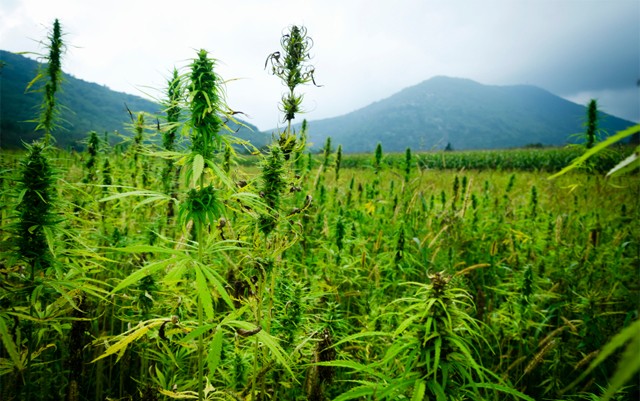Source: marijuanatimes.org

Every year thousands of Americans add fiberglass batts to interior walls, under floors and above ceilings to become more energy-efficient. However, this recommended material is made up of fibrous glass and has proven to be a potential health risk to occupants. Particles from fiberglass batts that are released into the air create skin and eye irritations, and a host of respiratory problems.
Hemp insulation is an alternative to fiberglass and holds many more quality factors. First off, hemp has the ability to absorb moisture. Fiberglas becomes ineffective when dampness is present and also makes a perfect climate for mold and mildew. Secondly, hemp is fire resistant. Fiberglass insulation will burn and let off toxic fumes to not only to those close by, but also to the environment. Thirdly, insects cannot penetrate hemp insulation and will be deterred from entering a home.
The manufacturing of fiberglass releases carcinogenic substances into the air, furthering damage to the atmosphere. Although found to be a human carcinogen by the National Toxicology Program in 1994, the International Agency for Research on Cancer reduced this classification due to lack of evidence in 2001. In addition, the production of fiberglass requires a rare mineral called Boron. At the rate of extraction for making fiberglass, this precious mineral is expected to be depleted in less than 60 years.
While the argument continues regarding the dangers of fiberglass, no one can argue the fact that this material does have a definite effect on the respiratory system and the irritation to skin. By replacing this questionable man-made substance with insulation created from natural hemp, several hidden truths of fiberglass could be brought to light.
With the U-value and the R-value of hemp being equal or better than that of suspected dangerous fiberglass, it only makes sense to surround buildings with environmentally-friendly hemp. Many countries are currently using hemp insulation as a safe and energy-efficient means of better regulating interior temperatures, controlling sick-building syndrome and protecting the environment. Currently, it is illegal to grow commercial hemp inside of the US for making hemp insulation. Several states are currently active in changing legislation that would allow farmers to grow commercial hemp as an alternative to fiberglass and other building materials.
SOURCES:
No comments:
Post a Comment